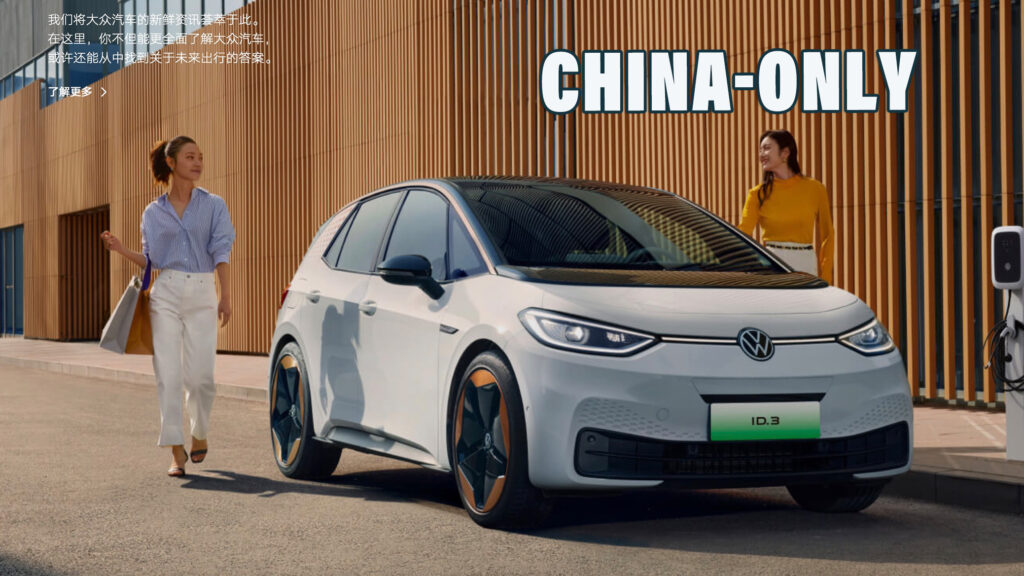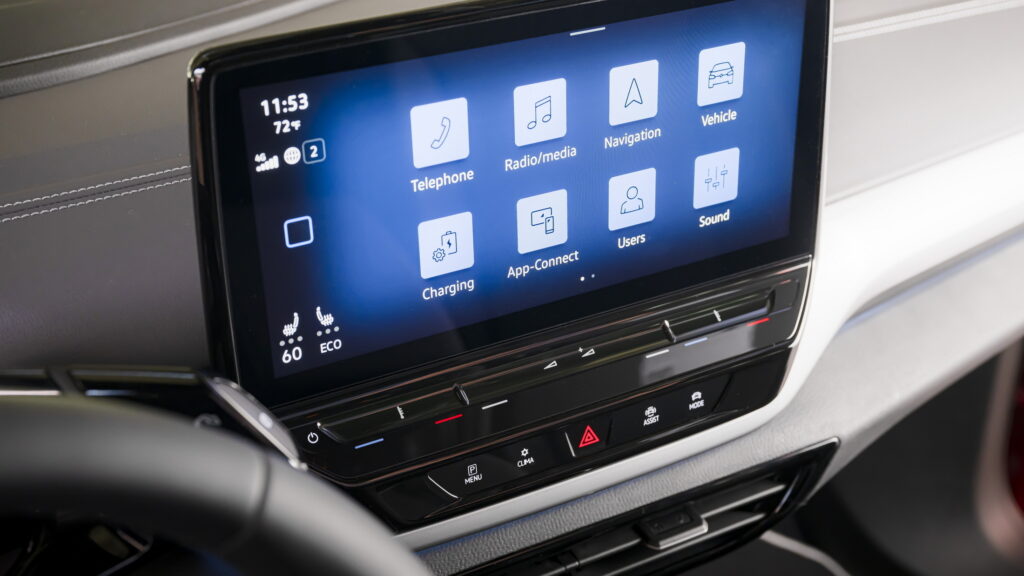Entry-level cars will ride on MEB-derived A Main Platform ready by 2026, reports says
4 hours ago
 –>
–> 
–>
Volkswagen was the first Western carmaker to set up shop in China and that move paid dividends for decades. But suddenly VW is on the backfoot having lost market share to increasingly competitive Chinese brands and is desperate to lower its costs.
One of the ways it will do that is by developing a new EV architecture that will be built in China specifically for the Chinese market. Called the A Main Platform, it’s related to the MEB we’re all familiar with through cars like the ID.3, ID.4, ID.Buzz and many other EVs from VW’s sister brands. But it will be optimized to suit Chinese buyers’ preferences in terms of battery and motor specs.
The company’s China boss, Ralf Brandstaetter, told Reuters that VW will develop four models priced between ¥140,000 ($19,500) and ¥170,000 ($23,800) on the new platform, production being handled by the firm’s joint ventures with SAIC and FAW.
advertisement scroll to continue
Related: Why VW Is Piggybacking Off Xpeng To Stay Relevant In China’s EV Race

It’s possible that the new architecture could cater to Chinese demands that seem weird to Westerners, such as the ability to have in-car Karaoke, and will almost certainly offer a more expansive digital experience than the one offered by cars like the ID.4, whose digital instrument display and infotainment screens are still relatively small, even after a recent update.
But just as important to VW, the platform will use Chinese suppliers, meaning it will be developed in two-thirds of the time needed to ready previous platforms, and will enable the company to be far more competitive on price. Ludger Luehrmann, CTO of Volkswagen Group China Technology Company (VCTC), the China-based VW firm developing the platform, gave Reuters an example of how it was able to lower the price of its dashboard displays by almost 40 percent after switching to a Chinese supplier. Switching development to China also cuts out delays resulting from the time zone differences between Germany and Asia.

 <!–
<!– –>
–> 